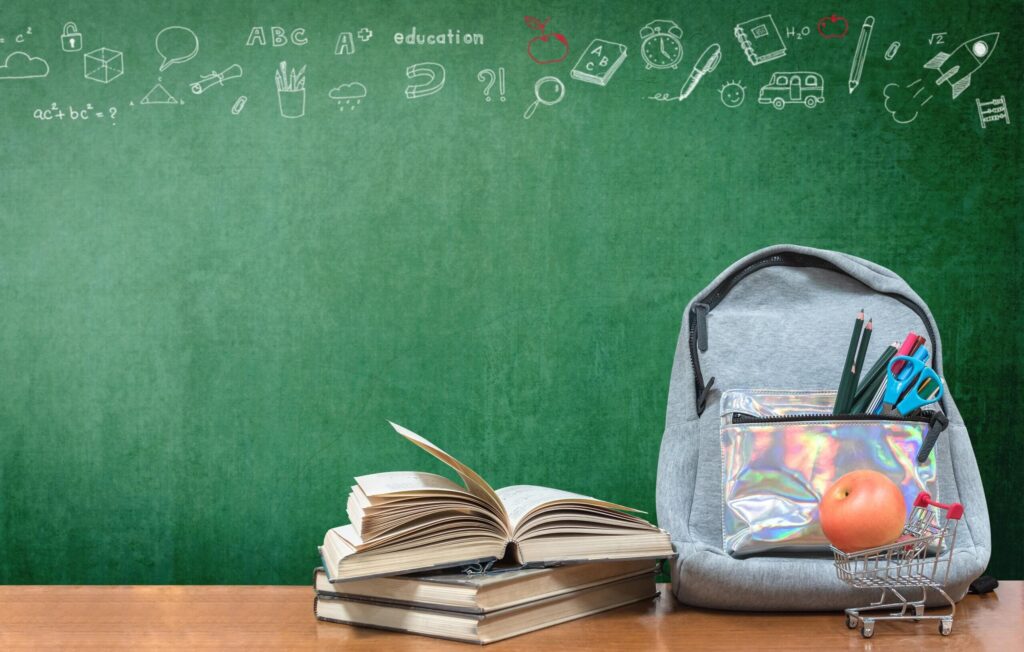
The current situation with the COVID-19 pandemic in Hong Kong has become more stable and students will soon be returning back to school in a few weeks. Most families may have gotten used to online learning at home. As a result, many parents and their children may encounter challenges when transitioning back to school. While schools are preparing themselves in their own ways, here are some recommendations on how parents and students themselves can prepare for the transition back to school and some guidelines regarding things to look out for once your child is back in school.
Connect with the school.
As schools are preparing for their students to return, take this opportunity to get a better understanding of what your school is doing to ensure the safety of your children and what they will be doing to ease their students’ transition from online home learning to in-person learning at school.
Minimise the unknown.
Many children and teenagers find transitions difficult because of unknowns and uncertainties. Try to minimise these by ensuring that your school and teachers are delineating the back to school process (displayed in a visual schedule as noted below), what is expected from students when they return to school, and what the school and parents can do to mitigate any transitioning difficulties.
Maintain a normal daily routine.
Adherence to a routine can make the transition back to school much easier and less stressful. It can provide a sense of predictability and control. If you haven’t already been doing so, now is definitely a good time to start maintaining a normal daily routine that is consistent with the daily school routine. Have your child do their morning routine like a school day (e.g., wake up, brush their teeth, get dressed, have breakfast, etc.). Before bed, be sure to maintain bedtime on a school night.
Play dates.
If possible and safe, arrange playdates with other children before school starts to help ease your child back to school. Research studies have shown that the ability to interact with peers during their transition back to school can have a positive impact on their academic and emotional adjustment.
Manage social media and dispel rumours.
Most people are more than excited to be able to return to school. At this time, it is important to manage social media and ensure that you are receiving accurate information regarding the current situation, schools, and things that may or may not be open. Do not share information that is not credible.
Countdowns to build excitement and practice run-throughs.
Some children may be super excited to be back in school, some may be anxious or worried, or some may be indifferent about it. Create a countdown or mark off days on the calendar to help your child better understand and visualise when they are returning to school. Practice doing morning “run-throughs” with your child (e.g., packing bags, exact time they leave for school, etc.) so they know what to expect. You can consider using visual schedules, organisers, and checklists to outline everything and to help your child manage themselves better.
Explain social distancing.
During this stressful time, both children and their parents have been distancing themselves from social interactions and may have not seen their family and/or friends for an extended period of time. When children are back in school, they are probably more than excited to be able to hang out with their friends. However, children may not always fully understand why they may not be allowed to be physically close with their friends. Explain why social distancing is still important and continue to follow the health guidelines regarding wearing masks, no physical contact, and washing your hands.
Constant Questions.
Realise that questions may persist as it is quite common for children when they are processing events. Let them know you are available to talk at any time and let their questions guide you. This will allow you to have a better understanding of what your child may or may not already know about going back to school. Children need to digest information on their own timetable, and questions might come out of nowhere.
Maintain a healthy diet.
A balanced diet, enough sleep, and adequate amounts of exercise all contribute towards building a robust immune system.

Signs of Distress or Worry:
- Changes in sleep (e.g., nightmares, trouble settling down to sleep, expressing fear about sleeping, etc.)
- Irritability, anger, and moodiness Poor concentration
- Changes in appetite
- Behaviour problems (e.g., acting out, tantrums) Jittery or jumpy behaviour
- Regression of behaviour in young children, such as clinging, bedwetting, or thumb- sucking, trouble separating, baby-talk
- Withdrawal from others Crying and tearfulness
- Increased fearfulness (e.g., monsters, the dark, being alone)
- Functional impairment: trouble going to school, performing in school, playing with friends






